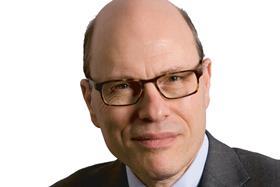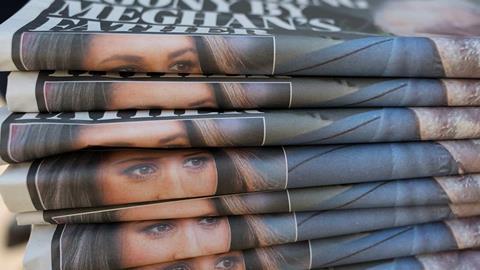
Does the writer of a letter that is self-evidently private and sensitive have the right to decide whether, when and how to publish its contents?
Lawyers for the Duchess of Sussex hope that Mr Justice Warby will soon decide that the answer is ‘yes’.
It is a ‘straightforward’ question, they told him at a two-day hearing last month – though one on which the UK’s courts have not ruled since the modern law of privacy was established nearly 20 years ago. And why might that be? Perhaps, the duchess’s lawyers suggested, because ‘the answer is so obvious that no litigant has thought it worth contesting’.
Until now, that is. Associated Newspapers, which published extracts in 2019 from a letter the duchess had written to Thomas Markle six months earlier, says she did not have a reasonable expectation of privacy in the five handwritten pages she sent her estranged father. According to the Mail on Sunday’s publishers, she expected or even intended the contents of her letter to enter the public domain. And if the duchess did have a right to privacy, it was ‘slight’ and outweighed by the newspaper’s right to freedom of expression.
The key phrase in the duchess’s assertion is that her letter was ‘self-evidently’ private. She is trying to persuade Warby to grant summary judgment in her favour without the need for a full trial.
It is a bold assertion and one that is opposed by the publishers, who say there are significant factual issues that need investigation at a hearing. And it is all the more challenging for the duchess because she also accuses Associated Newspapers of breaching her copyright in the letter. On that, too, she says the publishers have ‘no real prospect of successfully defending’ the issue and there is ‘no other compelling reason’ for a trial – the two requirements for summary judgment.
But if she succeeds, then – subject to the newspaper’s inevitable appeal – she would be vindicated without having to go into the witness-box and face cross-examination by the Mail’s QC.
Have her lawyers persuaded Warby that – as he put it in a directions order – the publisher’s case ‘could not realistically succeed even if the defendant proved all the facts it has alleged’?
'The key phrase in the duchess’s assertion is that her letter was ‘self-evidently’ private'
On the copyright claim, Associated Newspapers relies on the defences of fair dealing, freedom of expression and public interest. These are matters of law on which Warby could now rule. But if he does decide to test the evidence, it may well be on another aspect of the copyright claim.
For this was no ordinary letter. The duchess wrote to her father some three months after he had failed to attend her wedding to Prince Harry. ‘Your actions have broken my heart into a million pieces,’ she told him. ‘You’ve told the press that you called me to say you weren’t coming to the wedding – that didn’t happen because you never called… Please stop lying, please stop creating so much pain, please stop exploiting my relationship with my husband.’
Although it was handwritten, the letter was copied from a draft. On that basis, says Associated Newspapers, it lacked originality and did not qualify for copyright protection.
‘But I drafted the letter on my own iPhone,’ the duchess told her lawyers. She had shared a version with Jason Knauf, the Kensington Palace communications secretary, because his job included ‘keeping senior members of the royal household apprised of public-facing issues’. He made no contribution to the wording: just general comments on the draft. And even if there was some co-authorship, that would not be a compelling reason for a trial.
Ted Verity, editor of the Mail on Sunday, puts it differently. After friends of the duchess had told People magazine about the letter, her father gave a copy to the newspaper so it could set the record straight. Verity was subsequently told by a senior member of the royal household that Knauf had worked with the duchess on several drafts.
Solicitors for Knauf and three colleagues have recently said that one or more of them ‘would be in a position to shed some light’ on how the letter was created. But, said Warby pointedly, this was not an unqualified promise by them to give evidence.
Associated Newspapers says that privacy and copyright are both fact-sensitive issues that need to be investigated at a full trial. In a ‘double-or-quits’ gamble, the defendants argue that the two causes of action overlap – so that if Warby grants summary judgment on just one he would be tying the hands of whomever had to decide the other.
Ultimately, say the publishers, a court must decide how to balance the duchess’s right to privacy against their freedom of expression. That is certainly true.
But the courts may decide that nothing the newspaper could now establish will swing the balance in its favour.
































5 Readers' comments